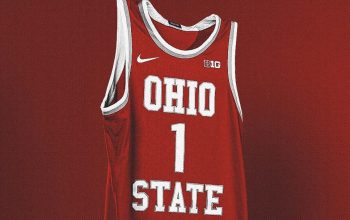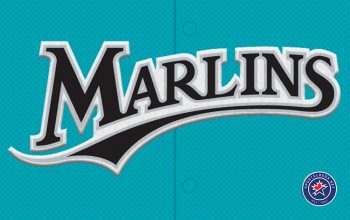
The UCF football program will once again celebrate its connection to the Kennedy Space Center and Cape Canaveral Space Force Station by wearing space-themed uniforms during its Nov. 11 game against Oklahoma State.
The Canaveral blue jerseys feature a “Space U” wordmark above custom numbers, which have a curvature that mimics the trajectory of rocket launches as seen from campus, as well as a a reflective gray outline that represents the “night glow” in the upper atmosphere.
The Pegasus wings on the sleeve caps are from the university seal, which can be seen in full on the Knights’ black home and white road jerseys, while the logo on the collar is new and combines the visual of a rocket blasting off with a sword as its tail and Polaris, also known as the North Star.
That effect can especially be seen on the sides of the Canaveral blue pants – where the rocket seemingly transitions into space on the hip – and the Canaveral blue center stripe on the white helmet, which is complete with UCF’s stacked logo on both sides.
Like the wings on the sleeves, upper part of the pants stripe and outline on the numbers, the logo includes a black background with stars throughout. The helmet is complete with the “Countdown County” area code (321) on the front bumper, “Space U” on the back bumper and a chrome facemask.
As mentioned, this marks the seventh straight season that UCF has worn space-themed uniforms, which is communicated by the “Mission VII” nameplate on the back of the jersey.
The Knights are 6-0 in their annual Space Game, including a 63-21 win over East Carolina in 2017, 52-40 over Temple in 2018, 44-29 win over Houston in 2019, 51-34 win over Tulane in 2020, 24-7 win over Memphis in 2021 and 70-13 win over Temple last fall.
Originally known as Florida Technological University, UCF was founded in 1963 with the mission of supporting the space program through a partnership with Kennedy Space Center and Cape Canaveral Air Force Station.
The Knights are now the No. 1 supplier of graduates to the aerospace and defense industry, and more than 30 alumni are currently involved with NASA’s Artemis 1, an unmanned moon-orbiting mission that will serve as a test for future human exploration of the moon and Mars.


















